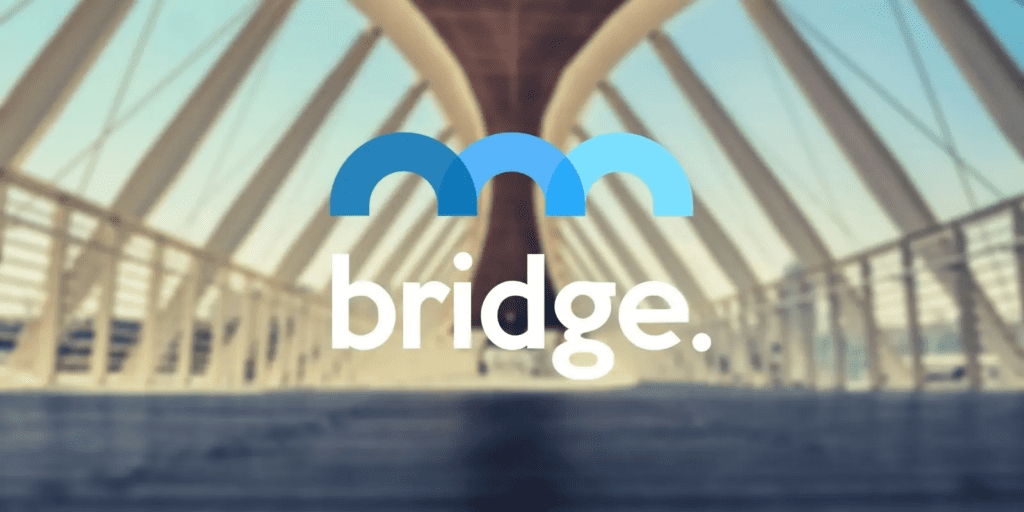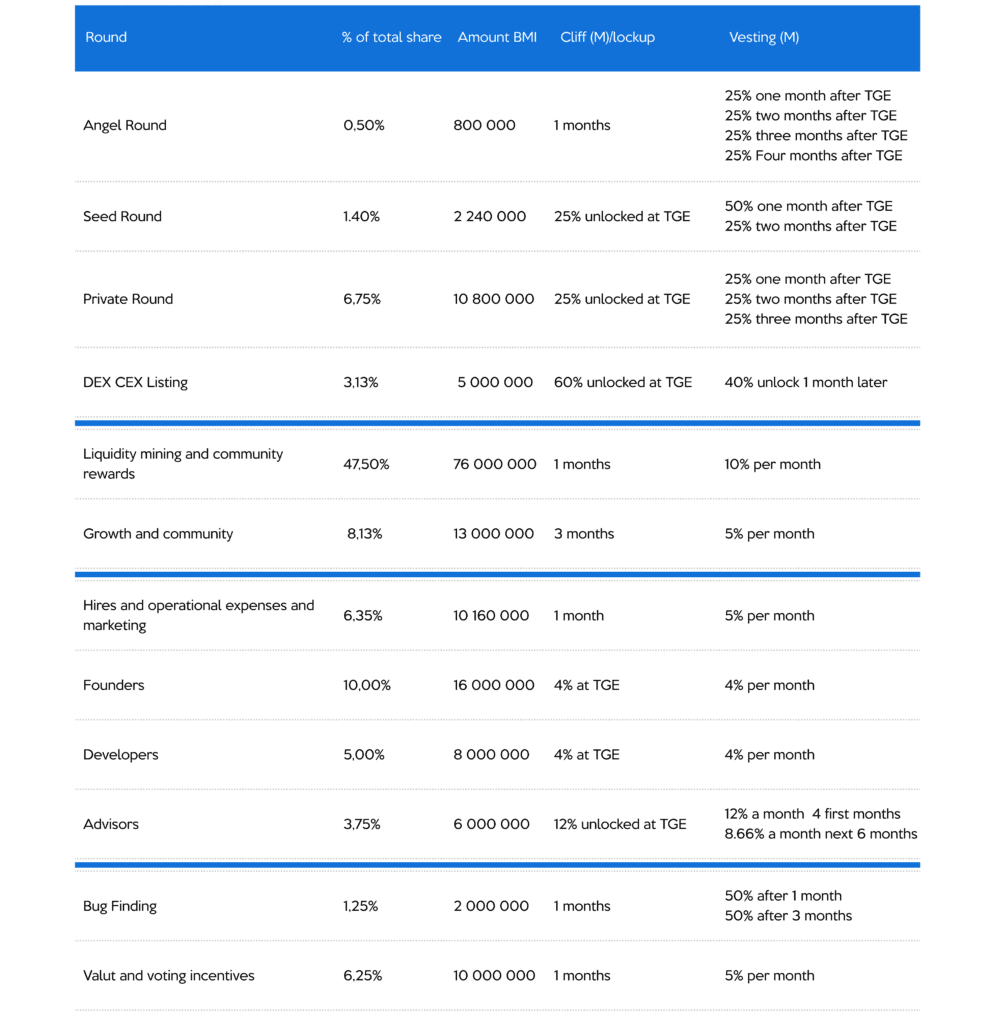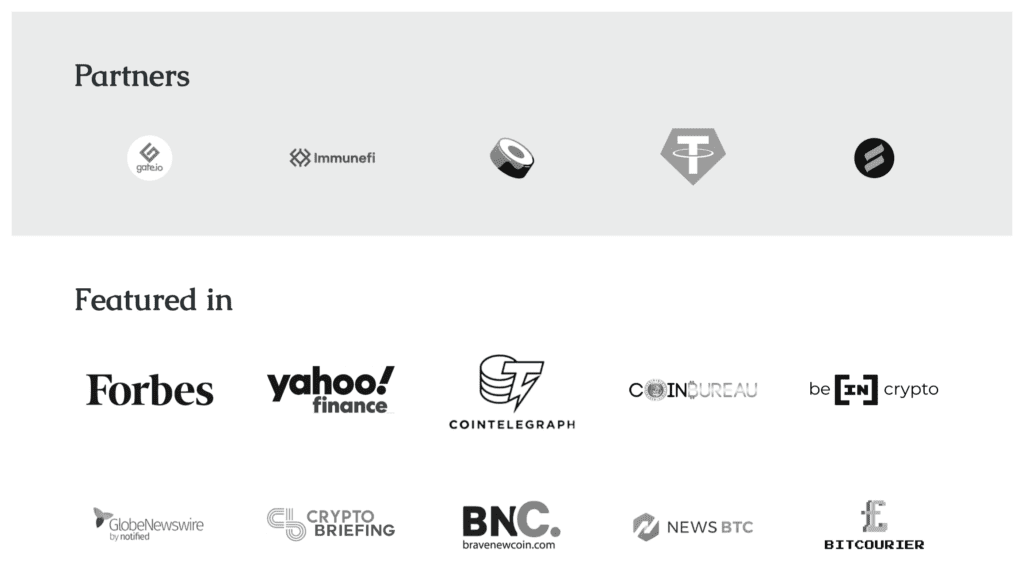Bridge Mutual Review: Great Insurance Platform for DeFi
Do you have a problem looking for a dependable trading platform based on the Ethereum network? Is it difficult for you to stake on a platform that does not provide decentralized insurance or decentralized finance? If so, Bridge Mutual is the best choice for you to pursue right now. Let’s find out about this project through the Bridge Mutual Review article.

We’ve all been told we need insurance, but not everyone gets it. Purchasing insurance is a wager that if anything goes wrong, you will be compensated. Occasionally the payout is more than the premiums you pay, but this is not always the case. The simplest way to think of it is as “just in case” insurance.
Decentralized insurance
If anything occurs for which you are covered, you or your donor will be compensated. But, you must subscribe to this benefit by paying a fee. Insurance companies calculate that if ten individuals each pay $100, they will have enough money to pay one person $1000 if anything were to happen.
Yet, if something horrible occurs to all ten individuals, which the insurance company believes is very improbable, everyone may get $1000, with the firm paying out of its own pocket/profits to do so.
The insurance company is responsible for paying out claims in this circumstance. Where do they receive their money? Individual premiums are mostly collected. They then take that money and invest it in additional growing assets after subtracting their “keeping the lights on” expenses, so they can pay out claims as they occur.
Bridge Mutual is an excellent solution created on the Ethereum network. This technology is offered as a mix of decentralized insurance and decentralized finance. It is critical to understand how long the cash will be safe in popular success. All insurance plans may be converted into decentralized smart contracts, eliminating the need for a middleman.
Nexus Mutual is a major Decentralized insurance provider. It is also used in the decentralized PoolTogether No Loss Lottery program. When it comes to high-profile hacking instances, DeFi insurance has always been one of the most important factors. Such occurrences are primarily the result of stolen coins, but they may also occur as a result of the loss of the client’s private keys or access.
To allow crypto to develop, users should limit losses from different threats. Certain DeFi smart contracts have not been vetted and may include security flaws. Given the overall climate, it is clear that investing in DeFi protocols is not for the faint of heart. Bridge Mutual comes into play here.
What is Bridge Mutual?
Michael Miglio created Bridge Mutual in 2020 as a non-custodial risk management organization that offers coverage for stablecoins and exchanges.
Bridge Mutual offers its consumers a decentralized, scalable, and all-encompassing smart contract solution for insuring stablecoins, smart contracts, centralized exchanges, and other crypto and DeFi goods.
The insurance platform provides its customers with transparent, auditable, on-chain investment options that generate returns and profit-sharing while requiring no KYC or personally identifiable information.
Bridge Mutual provides a decentralized insurance-like interface via which people may insure one another. Fundamentally, users may utilize the interface to find other users who provide the sort of insurance that they need at a price that they can afford. This eliminates the typically time-consuming procedure of clients conversing with numerous insurance brokers at the same time in the hopes of selecting one with whom they are compatible. Moreover, any claims made are published to the central blockchain, where the public may observe and evaluate them. This also applies to user investments of money. This increases user trust and assures that there is little or no fraud.
Bridge Mutual functions as a scalable and all-encompassing solution for various smart contracts to provide centralized exchanges and stable currency! On-chain investing solutions that are auditable or transparent may often be used to deliver yields or profit-sharing to users. Therefore, no KYC or personally identifying information is required.
Users will have improved coverage, be able to vote on insurance payments and share earnings with the aid of this platform. When claims are adjudicated, users are often compensated. Because of its openness, Bridge will eventually replace the old insurance market.
To have access to coverage, you must provide the smart contract address when buying the Smart Contract Cover. Highlight the amount, time range, and currency amount that must be covered. You must create a particular quotation.
Bridge Mutual uses the Ethereum blockchain, which allows individuals to share risk among themselves rather than relying on a centralized insurance firm. Bridge Mutual also owns the “Regular BMI Tokens,” which are membership tokens. wBMI encapsulates known, freely transferable BMI tokens. We will continue the Bridge Mutual Review article with highlights of the project.
Highlights
- It is a bespoke decentralized insurance application that enables users to “insure” each other’s risks.
- Transparency based on blockchain, on-chain, and auditable user compensation evaluations.
- All claims are subjected to a three-stage voting procedure with incentives and penalties, ensuring that each claim is thoroughly reviewed.
- As a bridge to reinvent conventional insurance since traditional insurance is unfair and prone to litigation owing to a lack of transparency and inequitable incentive allocation.
- More efficient than typical insurance, with no need for branch offices, claims experts, or agents.
- Turnaround times for claims and voting are constant and fewer than 6 weeks, regardless of claim size.
Features
Leveraged Portfolio
Users may deposit their coins here to get leverage and exposure to a high-reward-high-risk yield farming situation.
Leveraged Portfolio functions as a leveraged insurance provider, providing a significantly greater APY than traditional insurance does.
Reinsurance Pool
The Bridge Reinsurance Pool (RP) team pooled the protocol’s money. Interest is generated by three factors: the DeFi Yield Generator, the Protocol Fee, and the Reward Pool.
RP functions as an in-house insurance provider, which may dramatically minimize protocol risk at no extra expense to traditional insurance carriers.
Capital Pool
The BMI platform’s owner controls and distributes money both internally and externally. It is in charge of cash withdrawals, insurance payouts, and investments in third-party DeFi protocols to create income for the protocol.
Shield Mining
Shield Mining enables users (and projects) to donate X tokens to Project X’s Insurance Team in order to boost the pool’s APY and so attract additional liquidity to the coverage.
As a consequence, coverage providers will be compensated with BMI, USDT, and X tokens from the initiative.
BMI Widget
The simple-to-use technology enables BMI affiliates to offer coverage products directly and increase coverage liquidity via their own channels in return for a fee.
The fee is 5-15% of the policyholder’s premium.
BMI Mobile Version
The Bridge Mutual Dapp mobile version is appropriate for viewing and engaging from a mobile device. The design and the complete user interface (UI) have been optimized for a smaller touchscreen.
BMI token
Key Metrics
- Ticker: BMI.
- Blockchain: Ethereum.
- Contract: 0x725c263e32c72ddc3a19bea12c5a0479a81ee688.
- Token Standard: ERC-20.
- Token Type: Utility, Governance.
- Total Supply: 160,000,000 BMI.
- Circulating Supply: 64,697,071.17 BMI.
Token Allocation & Release Schedule

Use Cases
Bridge Mutual (BMI) is a unity token used for on-chain governance and coordination. Some of its functions are as follows:
- DApps Staking is a unique scheme created by the Bridge Mutual core team, and only Plasm supports it in the Polkadot ecosystem. Bridge Mutual aspires to be the most prominent DApps hub on the Polkadot Network. DApps will be developed as an incentive mechanism to execute smart contracts on the Plasm Network.
- BMI token holders may also stake their tokens on the network (Plasm network validator or matcher). Stakingers get a nomination reward as a result, and the network becomes more decentralized.
- Fees for on-chain transactions
- Voting and referendums are used to control the blockchain.
- The Plasm Network is a Layer 1 platform that may also be used for Layer 2 deployments. Developers of Layer 2 apps invest BMI tokens into their Layer 1 smart contracts and establish Layer 2 applications.
Advantages of Bridge Mutual with Nexus Mutual
Bridge’s main rival is Nexus Mutual, which has a market valuation of roughly $200 million. The following are the primary competitive advantages that Bridge and tokenomics architecture may maintain over their competitors:
- Product Line: Nexus Mutual only covers smart contract assaults, while Bridge is shaking things up by offering new policy categories, particularly for stablecoins but also for exchanges. Additional categories might be added in the future.
- Structure: Bridge does not need KYC and all procedures take place solely inside the network, while Nexus Mutual has an off-chain policy and membership fees.
- Special pricing model: in the case of Bridge, it is dynamically set by multiple risk variables of the kind of risk you want to protect yourself against, while Nexus implements a policy based only on liquidity.
- Claim voting: Bridge delivers automatic claims outcomes for the use case of stablecoin insurance plans, decreasing processing time and maintaining the process clean and fluid.
Team
- Mike Miglio (CEO)
- Lan Arden (CTO)
- Lili Feng (CLO)
- Michael Herzyk (CPO)
Investors & Partners
Investors
As mentioned above, the quality of the project as well as the development members of the project is very potential, so there are many famous investors who have invested in Bridge Mutual (BMI).
- The quality of the project as well as the development members of the project are highly promising, thus many notable investors have invested in Bridge Mutual.
- Faculty Capital is a research company focused on AI and Machine Learning. Offer exchange platform implementation services.
- Vendetta Capital is a firm that specializes in investing in blockchain goods. Mantradao, Skale, Polkastater, Web3api, Botocean, Insured, and Hopr are some examples of typical projects.
- Everyone is aware of the plasma financing initiative. It is of high quality since this business spends in order to have a mix of BMI and Plasma.
- Lichang is a Chinese investing firm. As a result, this initiative will get extensive publicity and marketing in China.
- Au21: an investment firm for well-known blockchain projects such as The Graph, Polkadot, Plasm, Cere Network, and Frontier.
Partners

Roadmap
While the team works on a new plan that will be released soon, a few items stick out that are worth investigating if they are not currently on the roadmap.
- Insurance for stablecoin depegging – this was discussed early on in the project but does not seem to be implemented now. Claims for depegged stablecoin are processed automatically, as opposed to other DeFi protocol claims, which must be voted on by voters. But, considering the recent de-pegging of the USDT, I suppose this would need to be approached with prudence.
- Transition to the DAO – The protocol seeks to move to a fully functional DAO structure by 2022. By that time, only necessary admin workers would be keeping the site running, with the community making the bulk of crucial choices.
- vBMI tokens are being phased out – vBMI tokens are now the entry-level condition for a person to become a voter. In a recent update, the vBMI tokens were phased away, although specifics are still due.
- Plans are in the works to deploy the app on Binance Smart Chain and Polygon in the near future. Keep an eye out for them.
Conclusion of Bridge Mutual Review
Despite the fact that conventional insurance has been around for a long time, lingering issues continue to stymie its progress. As a result, Bridge Mutual is an excellent choice for blockchain-integrated apps.
Bridge Mutual is a platform that has designed and developed a decentralized insurance model by merging DeFi apps on its platform in order to deliver several application solutions on the same DeFi project.
Users will have improved coverage, be able to vote on insurance payments and share earnings with the aid of this platform. When claims are adjudicated, users are often compensated. Because of its openness, Bridge will eventually replace the old insurance market. Hopefully the Bridge Mutual Review article has helped you gain a deeper insight into the project.
DISCLAIMER: The information on this website is provided as general market commentary and does not constitute investment advice. We encourage you to do your own research before investing.
Join us to keep track of news: https://linktr.ee/coincu
Harold
Coincu News














